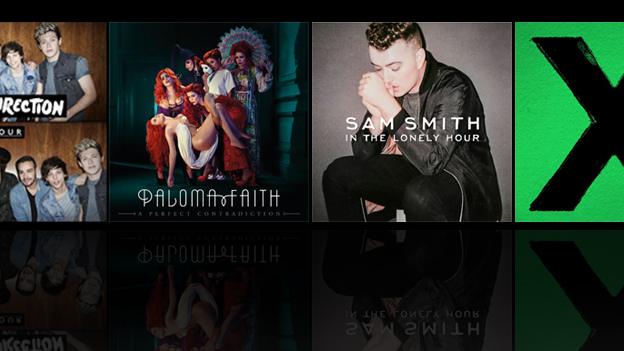Album charts to count streamed songs
- Published
- comments
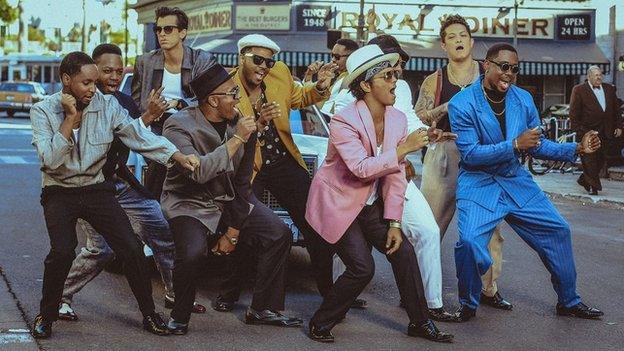
Uptown Funk by Mark Ronson and Bruno Mars is the most-streamed track ever in the UK, achieving 2.56m streams in a single week
Music streamed on sites like Spotify and Deezer will count towards the UK album charts from March, the Official Charts Company has announced.
The change comes after music streaming doubled in 2014, with 14.8 billion individual tracks streamed in the UK.
Audio streams were successfully added to the singles chart in July, when Ariana Grande scored the first combined sales and streaming number one.
Streams will be included in the album chart using a similar methodology.
Data will be counted from 23 February, and the first chart to include streams will be published on Sunday 1 March.
"It won't make a significant impact initially," said chart company boss Martin Talbot, adding streams would account for "an uplift of about 10% in the Top 40".
Instead, the move is intended to future-proof the chart "so it's ready to reflect changing consumption habits", he told the BBC.
Sales of CDs dropped by 8% in 2014, while streaming now accounts for 12.6% of all the music consumed in the UK - a figure that is set to rise again this year, with 1.5 billion tracks streamed in January alone.
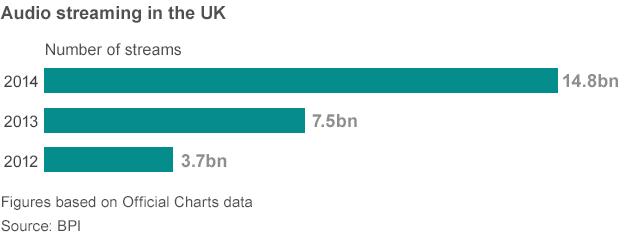
Music streamed on eight different services (see table below) will now be counted towards the album chart, with the notable exception of YouTube.
Talbot said negotiations with Google's video streaming service were ongoing.
The BBC understands YouTube's data causes problems for chart compilers because it does not separate official, record label-sanctioned streams from user-generated videos.
However, the launch of YouTube's new music subscription service, Music Key, later this year could change that.
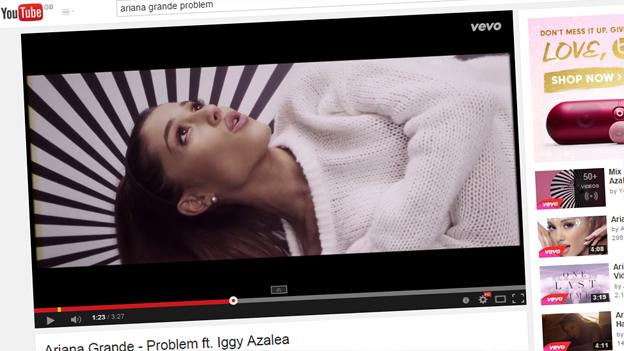
Ariana Grande's hit single Problem has been watched on YouTube 413 million times, but none of those views have counted towards its chart position
The move comes with the backing of the music industry, despite several high-profile artists expressing concerns over the royalty rates paid by streaming services.
Taylor Swift removed her music from Spotify last year, saying: "I'm not willing to contribute my life's work to an experiment that I don't feel fairly compensates the writers, producers, artists, and creators of this music."
Ed Sheeran took the opposite view, telling the BBC he "owed his career" to streaming services.
"I think Spotify are paying the right amount," he said. "We're just not seeing it, because the labels aren't making as much as they used to, so they want to keep a lot of the money that Spotify give them, and not pay it out to us. Which is the truth. It is the truth."
Chart anomalies
Adding streaming data to the singles chart has proved relatively straightforward - with 100 streams of a song counting as the equivalent of one purchase.
But turning streams into albums-related data is trickier.
In the US, the Billboard chart equates 1,500 streams of any song from an album to one sale.
However, that leads to situations where the popularity of one song pushes the entire album up the chart.
For instance, Mark Ronson's recent album Uptown Special sold 9,800 copies over the counter in its first week of release, but it made the top 10 of the US Billboard 200 with a final tally of 48,582 sales, propelled by streams and downloads of the hit single Uptown Funk.
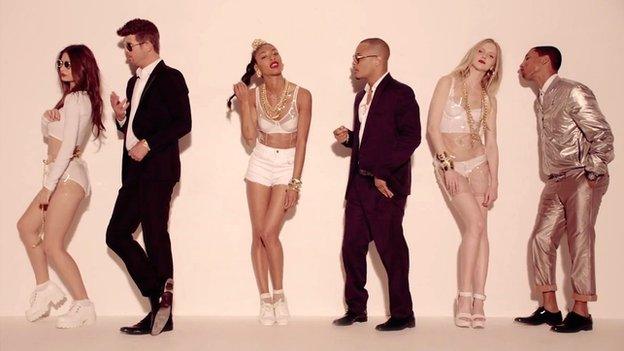
In the UK, streaming data will be weighted to stop breakout hits like Blurred Lines pushing its parent album up the charts
The Official Chart Company says it will weight its data to avoid similar situations.
It will look at the 12 most-streamed tracks from each album, then down-weight the two most popular in line with the average of the next 10.
These streams will then be added together and divided by 1,000. This "stream factor" will then be added to the physical/digital sales of the album, to produce an overall "sales figure" that determines an album's position in the countdown.
"We're trying to do it the right way and make sure the album chart doesn't become a reflection of the popularity of Blurred Lines and Uptown Funk and tracks like that," said Talbot.
The BPI, which represents the music industry, welcomed the makeover.
"The Official Charts are the definitive measure of an artist's popularity in the UK, so it's crucial they keep pace with the different ways that fans enjoy music," said chief executive Geoff Taylor.
"The album is the ultimate expression of an artist's creativity, so we're delighted that fans listening to albums on streaming services will now be contributing to the Official Albums Chart."
"Reports of the death of the album have been exaggerated," added Spotify's Kevin Brown. "Indeed the majority of streams in the UK come from albums".
"We are delighted to see the consumption of albums by the millions of music fans on Spotify in the UK now being reflected in the Official Album Chart."
- Published12 February 2015
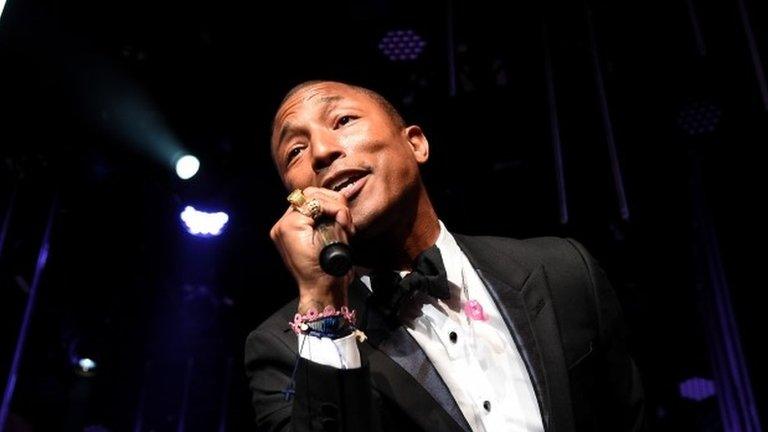
- Published23 June 2014
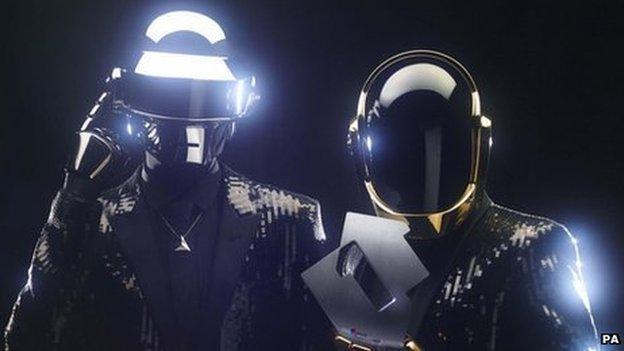
- Published6 July 2014
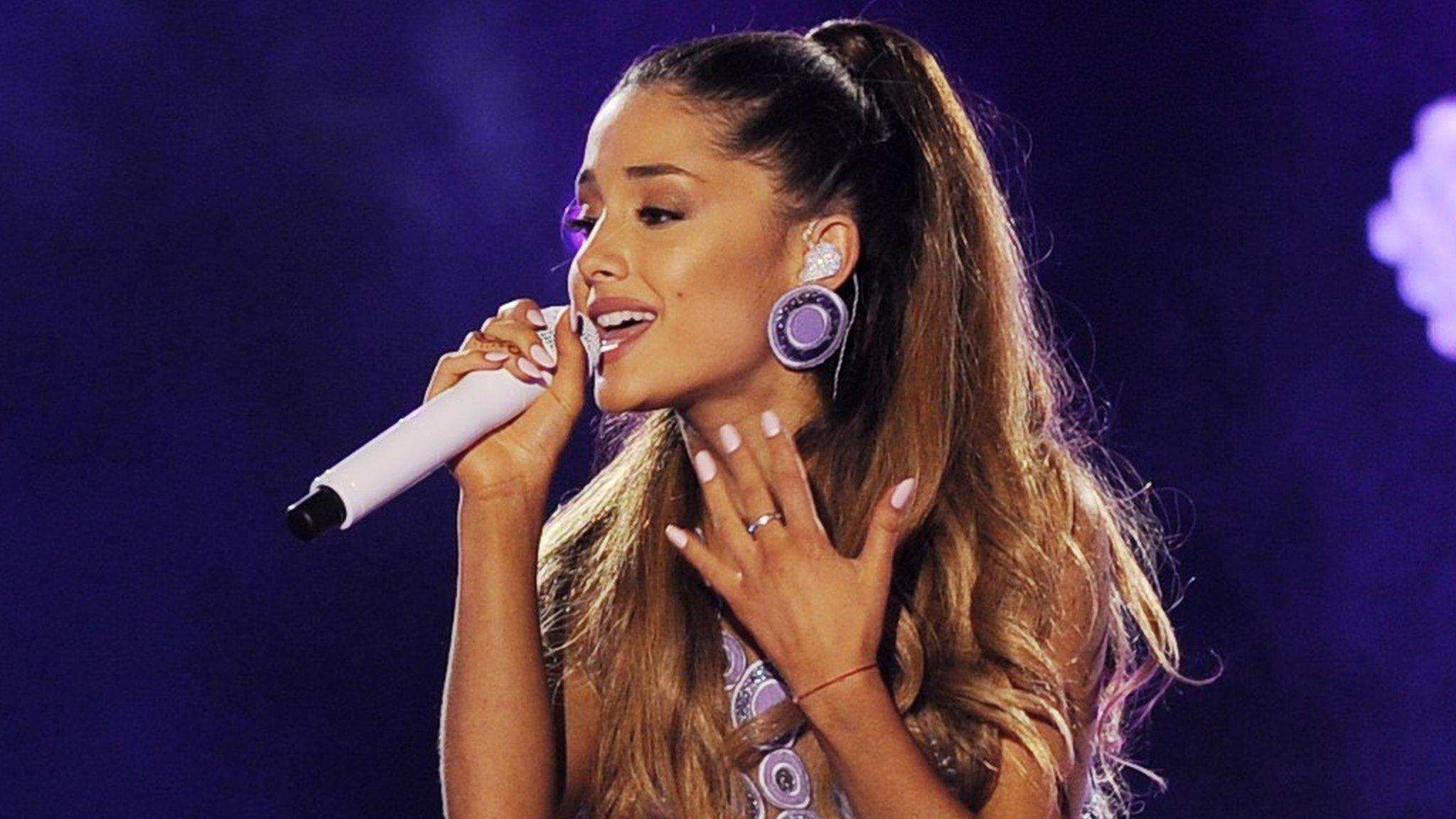
- Published27 June 2014

- Published1 January 2015
